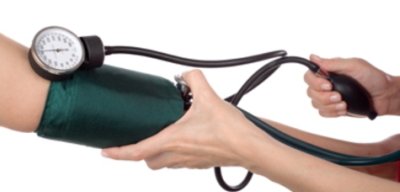What are the Diabetic Complications?
People who have diabetes also have a higher risk of exposure to diabetic complications and this could lead to serious health problems, this is no secret.
Most of the diabetic complications are the result of problems with blood vessels.
High sugar levels over a long time cause narrowing of both the small and large blood vessels. The narrowing reduces blood flow to many parts of the body, leading to problems.
The only chance of people with diabetes to reduce this risk is to maintain a strict control of blood sugar levels.
Health-care providers indicate several diabetic complications in several body organs.
Complications such as:
High blood pressure
High blood pressure, also called hypertension is when the flow of blood may be blocked because the blood vessel walls thicken and become hard and non-elastic.
The heart has to work harder when blood pressure is high, and the risk for diabetes problems goes up and there is a high risk for heart attack as well.
High blood pressure is a problem that won't go away without treatment. The treatment must be a combination of both a lifestyle change and medications.

Kidneys complications
The kidneys are the blood filters of our body.
After we eat, all the waste products in the blood remain in the kidneys and removed later with the urine.
Diabetes can damage this system. High levels of blood sugar make the kidneys filter too much blood. The kidneys work very hard and filtering becomes less efficient.
Diabetes can damage the kidneys and cause them a disease.
Eye problems
There are 3 main complications.
Retinopathy - this is a deterioration of the small blood vessels that nourish the retina in the eye. The results can be from deterioration of vision until total blindness.
Most people with diabetic retinopathy have no symptoms at the beginning, but when they have symptoms it is too late to treat them.
For this reason, you should have your eyes examined regularly by an eye care professional.
Glaucoma – this is a pressure of liquid that builds up in the eye.
It causes people to lose their vision slowly and permanently. That's why glaucoma has been nicknamed the "sneak thief of sight".
You can use drugs to reduce pressure in the eye. The other treatment is surgery.
Cataracts – this is a situation that the eye's clear lens clouds, blocking light. It develops over years and causes blurred vision.
Wearing sunglasses can help with small problem of cataracts, but if the problem is serious then doctors usually remove the lens of the eye by surgical operation.
Skin complications
Skin problems, or Diabetic Dermopathy are sometimes the first sign for diabetic complications.
The skin problems are result of the changes in the small blood vessels which are under the skin.
Problems such as: bacterial infections, fungal infections, itching.
The skin lesions of diabetic dermopathy often improve over time.
Keeping skin moisturized and trying to avoid any injury to the legs should help prevent the development of some lesions.
One of the greatest solutions for treating skin problems due to diabetic complications is the Aloe Vera skin cream and lotion.
Learn more about it in Strato's site:
Aloevera changes lives.com - The Aloe Vera Benefits.

Foot problems
Most of diabetes foot problems come from the nerves problems.
Lack of sensation causes people to continuing walking on injured feet. The result is foot ulcers without any treatment which are very dangerous.
Nerves problems
It's called Diabetic Neuropathy.
Permanent high blood sugar levels damage the nerve badly.
It affects both the nerve fiber and the fatty insulation that surrounds it.
Damaged nerves do not function well.
There is a loss of sensation, or hyper sensation, or pain.
The most common form is the Peripheral Neuropathy.
It can affect the feet and the hands. There are feelings of numbness, tingling, burning, dull ache, or stabbing pain and cramping, which is worse at night. The skin becomes very sensitive and painful.
The other form is Autonomic Neuropathy.
It affects the autonomic nerves which control your body system such as the digestive system, the urinary tract, the sex organs, the heart and blood vessels, and eyes.
It happens often to elderly people with many years of diabetes who don't control successfully their blood sugar levels.
There are several symptoms such as: The bladder is in pressure (fills with urine), dysfunction of sex organs, Watery diarrhea, A lot of sweating, especially at night or after eating, low blood pressure (possibility of fainting).
For information about aging well, with or without diabetes, you're invited to visit Mary's site:
Age-well.org
Live Younger Longer
Information about strategies
to age well and live a long, active life. These include eating well, exercising regularly, looking after one’s body,
and giving up habits detrimental to health. Informs on age-related diseases and prevention, keeping mind and brain
alert, and looking younger.
|
Return from Diabetic Complications to Diabetes Guide |